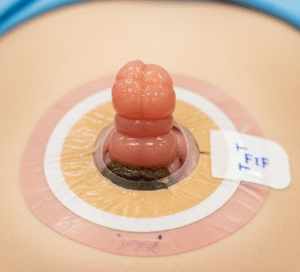In Korea, health and wellness trends are closely tied to the idea of balance — both in body and mind. Unlike some Western detox programs that focus on fasting or extreme restrictions, Korean nutritionists promote a gentler, more sustainable approach to cleansing the body. Their focus is on restoring the body’s natural detox systems through balanced meals, hydration, fermented foods, and mindful eating. Let’s explore what experts in Korea recommend for safe and effective detoxification.
➤ The Korean View of Detoxification
In Korean nutritional philosophy, detoxing isn’t about drastic cleansing or skipping meals. Instead, it’s about supporting the liver, kidneys, and digestive system so they can perform their natural detox functions efficiently. Korean nutritionists emphasize that your body is already equipped with detox organs — the goal is to nourish, not deprive.
They encourage eating foods that help the body eliminate toxins while maintaining energy and nutrient balance. A Korean detox plan often focuses on cleansing through nourishment, rather than strict elimination or fasting.
➤ 1. Start with Warm, Light Meals
Unlike cold juices or raw food detoxes popular elsewhere, Korean nutritionists recommend warm, easily digestible meals to maintain digestive energy.
Common examples include:
- Rice porridge (juk) made from brown rice, pumpkin, or mung beans to soothe digestion and promote hydration.
- Vegetable soups such as miyeokguk (seaweed soup) or kongnamulguk (soybean sprout soup), rich in minerals and fiber.
- Steamed vegetables instead of raw salads, which are easier on the stomach and retain nutrients.
Warm food helps stimulate blood flow and aids digestion, allowing the body to detox gently without weakening the system.
➤ 2. Emphasize Fermented Foods for Gut Cleansing
One of the cornerstones of the Korean diet — and its secret weapon for detox — is fermentation. Fermented foods introduce beneficial bacteria that improve gut health, strengthen immunity, and enhance nutrient absorption.
Korean nutritionists often suggest incorporating the following into daily meals:
- Kimchi: A fermented mix of cabbage, garlic, ginger, and chili, packed with probiotics that aid digestion and reduce bloating.
- Doenjang (fermented soybean paste): Contains enzymes that support liver function and digestion.
- Makgeolli (fermented rice drink): Consumed in moderation, it provides natural yeast and amino acids beneficial for gut flora.
A healthy gut is essential for detoxification since the digestive tract plays a major role in filtering and expelling waste.
➤ 3. Hydration with Herbal and Grain Teas
In Korea, hydration isn’t just about drinking plain water — it’s about drinking purposefully. Herbal and grain teas are preferred over sugary beverages or juice cleanses.
Popular detoxifying teas include:
- Barley tea (boricha): Helps flush out toxins, supports digestion, and balances body temperature.
- Omija tea (five-flavor berry tea): Known for its antioxidant and liver-protective properties.
- Green tea: Rich in catechins that promote fat metabolism and protect cells from oxidative stress.
- Corn silk tea: Traditionally used for kidney and bladder health.
Drinking these teas throughout the day aids detoxification naturally while keeping the body hydrated and calm.
➤ 4. Seasonal Detox Foods
Korean nutritionists often tailor detox foods according to the season, aligning with traditional medicine principles that the body’s needs change with the climate.
- Spring: Focus on leafy greens like spinach, wild herbs (namul), and sprouts to refresh the liver.
- Summer: Cooling foods like cucumber, zucchini, and watermelon help release heat and promote hydration.
- Autumn: Root vegetables like sweet potatoes, radishes, and mushrooms strengthen digestion and immunity.
- Winter: Warm soups, black sesame, and ginger tea protect internal warmth and boost circulation.
This seasonal approach keeps the body balanced and reduces stress on internal organs.
➤ 5. Limit Processed Foods and Refined Sugars
A detox, in Korean nutrition, also means simplifying the diet. Processed foods, sugary snacks, and fried dishes are considered burdensome to the liver and digestive system.
Instead, nutritionists suggest:
- Cooking with natural seasonings like soy sauce, sesame oil, garlic, and salt.
- Using fresh ingredients from local markets.
- Avoiding excessive sauces, oils, and artificial flavorings.
By removing heavy or chemical-laden foods, the digestive system gets a break, allowing the body to naturally flush out toxins.
➤ 6. Balance Through Portion Control and Regular Eating
Rather than skipping meals or fasting, Korean dieticians emphasize moderation. Eating small, regular portions helps maintain blood sugar levels and prevents fatigue — common problems with harsh detox plans.
Mindful eating, chewing slowly, and appreciating food are also encouraged. This habit reduces stress on digestion and improves nutrient absorption, which enhances natural detox pathways.
➤ 7. Support Liver Function Naturally
The liver is the body’s main detox organ, and Korean nutritionists recommend foods that protect and strengthen liver function. These include:
- Garlic and onions for their sulfur compounds that activate liver enzymes.
- Green vegetables like spinach and broccoli to increase glutathione, a key detox antioxidant.
- Seaweed and kelp, rich in minerals that bind heavy metals and support cleansing.
- Tofu and soybeans, providing plant-based protein and lecithin for liver repair.
A healthy liver ensures that toxins are broken down efficiently and removed from the body.
➤ 8. Gentle Movement and Rest
Detox isn’t only about diet — movement and relaxation are vital. Korean wellness culture emphasizes light activity such as yoga, walking, and stretching to stimulate circulation and lymph flow. Adequate sleep is equally important for the body’s nightly repair and regeneration process.
Mindfulness, breathing exercises, and time spent in nature all complement the detox process by reducing stress hormones that can slow down metabolism.
➤ The Korean Detox Philosophy
At its core, the Korean approach to detox is not about extreme cleansing but about rebalancing. It’s a lifestyle shift that encourages:
- Eating whole, natural, seasonal foods.
- Supporting gut and liver health.
- Hydrating with herbal teas.
- Moving gently and resting mindfully.
Korean nutritionists often remind their patients that true detoxification happens daily, through the body’s natural systems, not during a temporary diet. When supported with proper nourishment, the body detoxes itself — gently and effectively.













